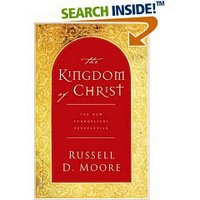Don’t Waste Your Cancer
by John Piper
February 15, 2006
I write this on the eve of prostate surgery. I believe in God’s power to heal—by miracle and by medicine. I believe it is right and good to pray for both kinds of healing. Cancer is not wasted when it is healed by God. He gets the glory and that is why cancer exists. So not to pray for healing may waste your cancer. But healing is not God’s plan for everyone. And there are many other ways to waste your cancer. I am praying for myself and for you that we will not waste this pain.
1. You will waste your cancer if you do not believe it is designed for you by God.
It will not do to say that God only uses our cancer but does not design it. What God permits, he permits for a reason. And that reason is his design. If God foresees molecular developments becoming cancer, he can stop it or not. If he does not, he has a purpose. Since he is infinitely wise, it is right to call this purpose a design. Satan is real and causes many pleasures and pains. But he is not ultimate. So when he strikes Job with boils (Job 2:7), Job attributes it ultimately to God (2:10) and the inspired writer agrees: “They . . . comforted him for all the evil that the Lord had brought upon him” (Job 42:11). If you don’t believe your cancer is designed for you by God, you will waste it.
2. You will waste your cancer if you believe it is a curse and not a gift.
“There is therefore now no condemnation for those who are in Christ Jesus” (Romans 8:1). “Christ redeemed us from the curse of the law by becoming a curse for us” (Galatians 3:13). “There is no enchantment against Jacob, no divination against Israel” (Numbers 23:23). “The Lord God is a sun and shield; the Lord bestows favor and honor. No good thing does he withhold from those who walk uprightly” (Psalm 84:11).
3. You will waste your cancer if you seek comfort from your odds rather than from God.
The design of God in your cancer is not to train you in the rationalistic, human calculation of odds. The world gets comfort from their odds. Not Christians. Some count their chariots (percentages of survival) and some count their horses (side effects of treatment), but we trust in the name of the Lord our God (Psalm 20:7). God’s design is clear from 2 Corinthians 1:9, “We felt that we had received the sentence of death. But that was to make us rely not on ourselves but on God who raises the dead.” The aim of God in your cancer (among a thousand other good things) is to knock props out from under our hearts so that we rely utterly on him.
4. You will waste your cancer if you refuse to think about death.
We will all die, if Jesus postpones his return. Not to think about what it will be like to leave this life and meet God is folly. Ecclesiastes 7:2 says, “It is better to go to the house of mourning [a funeral] than to go to the house of feasting, for this is the end of all mankind, and the living will lay it to heart.” How can you lay it to heart if you won’t think about it? Psalm 90:12 says, “Teach us to number our days that we may get a heart of wisdom.” Numbering your days means thinking about how few there are and that they will end. How will you get a heart of wisdom if you refuse to think about this? What a waste, if we do not think about death.
5. You will waste your cancer if you think that “beating” cancer means staying alive rather than cherishing Christ.
Satan’s and God’s designs in your cancer are not the same. Satan designs to destroy your love for Christ. God designs to deepen your love for Christ. Cancer does not win if you die. It wins if you fail to cherish Christ. God’s design is to wean you off the breast of the world and feast you on the sufficiency of Christ. It is meant to help you say and feel, “I count everything as loss because of the surpassing worth of knowing Christ Jesus my Lord.” And to know that therefore, “To live is Christ, and to die is gain” (Philippians 3:8; 1:21).
6. You will waste your cancer if you spend too much time reading about cancer and not enough time reading about God.
It is not wrong to know about cancer. Ignorance is not a virtue. But the lure to know more and more and the lack of zeal to know God more and more is symptomatic of unbelief. Cancer is meant to waken us to the reality of God. It is meant to put feeling and force behind the command, “Let us know; let us press on to know the Lord” (Hosea 6:3). It is meant to waken us to the truth of Daniel 11:32, “The people who know their God shall stand firm and take action.” It is meant to make unshakable, indestructible oak trees out of us: “His delight is in the law of the Lord, and on his law he meditates day and night. He is like a tree planted by streams of water that yields its fruit in its season, and its leaf does not wither. In all that he does, he prospers” (Psalm 1:2). What a waste of cancer if we read day and night about cancer and not about God.
7. You will waste your cancer if you let it drive you into solitude instead of deepen your relationships with manifest affection.
When Epaphroditus brought the gifts to Paul sent by the Philippian church he became ill and almost died. Paul tells the Philippians, “He has been longing for you all and has been distressed because you heard that he was ill” (Philippians 2:26-27). What an amazing response! It does not say they were distressed that he was ill, but that he was distressed because they heard he was ill. That is the kind of heart God is aiming to create with cancer: a deeply affectionate, caring heart for people. Don’t waste your cancer by retreating into yourself.
8. You will waste your cancer if you grieve as those who have no hope.
Paul used this phrase in relation to those whose loved ones had died: “We do not want you to be uninformed, brothers, about those who are asleep, that you may not grieve as others do who have no hope” (1 Thessalonians 4:13). There is a grief at death. Even for the believer who dies, there is temporary loss—loss of body, and loss of loved ones here, and loss of earthly ministry. But the grief is different—it is permeated with hope. “We would rather be away from the body and at home with the Lord” (2 Corinthians 5:8). Don’t waste your cancer grieving as those who don’t have this hope.
9. You will waste your cancer if you treat sin as casually as before.
Are your besetting sins as attractive as they were before you had cancer? If so you are wasting your cancer. Cancer is designed to destroy the appetite for sin. Pride, greed, lust, hatred, unforgiveness, impatience, laziness, procrastination—all these are the adversaries that cancer is meant to attack. Don’t just think of battling against cancer. Also think of battling with cancer. All these things are worse enemies than cancer. Don’t waste the power of cancer to crush these foes. Let the presence of eternity make the sins of time look as futile as they really are. “What does it profit a man if he gains the whole world and loses or forfeits himself?” (Luke 9:25).
10. You will waste your cancer if you fail to use it as a means of witness to the truth and glory of Christ.
Christians are never anywhere by divine accident. There are reasons for why we wind up where we do. Consider what Jesus said about painful, unplanned circumstances: “They will lay their hands on you and persecute you, delivering you up to the synagogues and prisons, and you will be brought before kings and governors for my name’s sake. This will be your opportunity to bear witness” (Luke 21:12 -13). So it is with cancer. This will be an opportunity to bear witness. Christ is infinitely worthy. Here is a golden opportunity to show that he is worth more than life. Don’t waste it.
Remember you are not left alone. You will have the help you need. “My God will supply every need of yours according to his riches in glory in Christ Jesus” (Philippians 4:19).
Pastor John
* you can find the article here:
http://desiringgod.org/library/fresh_words/2006/021506.html









